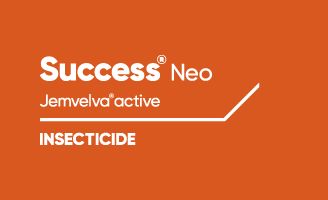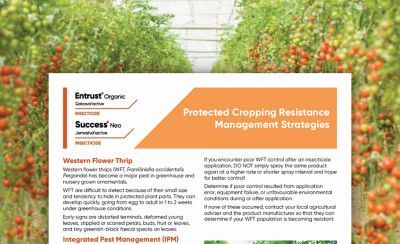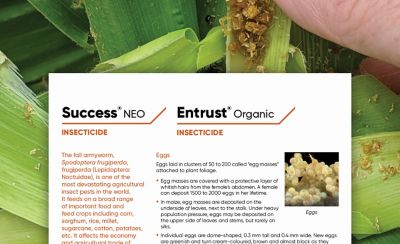
Ensuring the long-term viability of their enterprise by using sustainable farming practices is a cornerstone of Harvest Farms, which is part of the One Harvest Group, at Richmond, near Hobart in Tasmania.
General Manager - Harvest Farms (one Harvest Group), Lawrence Cowley, said sustainability was front of mind when they first established the baby leaf salads operation.
“Back in 2014 we took the decision that we would embrace cover cropping over the winter months when we are not producing salads,” he said. “We knew that would be critically important for the long-term soil health.”
“In addition to that, we're on a controlled traffic, raised bed system. The beds stay in situ all the time so it is a permanent bed system. We're also putting in up to 40 tonnes per hectare of compost seasonally. We want to be farming this property for the long term.”
He said they were also using soil moisture probes to calibrate their crop co-efficients and schedule irrigation effectively and were part of a Hort Innovation project looking at soil health and integrated crop protection.
The challenge for the enterprise is to produce high quality produce that can be delivered to consumers across the nation.
“We've got very prescriptive quality parameters for our product and the visual appearance of the crop is very important,” Mr Cowley said. “Shelf life is a very significant factor as well so there are a number of areas to think about when it comes to quality. Quality and food safety are really the primary factors that we consider in our crop planning and in our production processes."
“It is quite challenging. We've got all the elements in terms of weather, to deal with. We've got the husbandry of the crop and the planning that goes into nurturing the crop, protecting the crop against some of the pests and diseases and weeds that are part and parcel of growing in an open field environment. But the sense of satisfaction, of producing a crop at the end of the day is probably what gets us motivated in the morning."
Products used on the property were chosen for their efficacy and their ability to fit into the sustainable targets of the operation.
“A key part of that is selecting products that are less persistent, can accommodate beneficial insects in this cropping system,” Mr Cowley said.
“In terms of disease control, we look very carefully at the actives that are part of that strategy, in terms of their fit, environmentally and ecologically. It is a very important part of our thinking when we're developing strategies for producing the crops."
One of the major products used at Harvest Farms is Zorvec Enicade fungicide to control Downy mildew in the baby leaf crops.

"We were one of a few growers that started to use Zorvec very early after release and it is no exaggeration to say that it has been a game changer for us,” he said.
“It has enabled us to continue to use varieties of crop that maybe don't have the genetic resistance to some of the diseases that Zorvec controls but have other characteristics that we really value in terms of yield or plant habit or colour.”
“It’s really enabled us to extend the value of the genetics that are available to us. In some instances it has made the difference in terms of being able to extend the season for some crop types and to continue to produce crops like rocket, for example, which can be very susceptible to Downy mildew.”
“That's been of great benefit to One Harvest because the consumer has a preference for those leaf types and so being able to maintain the supply of those has been really significant."
He said the use of Zorvec provides a lot more confidence around the product's shelf life. We've experienced in the past, low levels of Downy Mildew in these leafy salad crops which may not be seen immediately at the point of harvest but continue to develop post-harvest.
Since we've had Zorvec in the program, we're not seeing that type of situation so effectively we've got an improvement in shelf life as a result of Zorvec.”
Diamondback moth, in brassica leafy crops, is a significant challenge and Leaf miner is also of great concern.
“Leaf miner control is something that I've had previous experience with difficulty controlling,” Mr Cowley said. “This was in another part of the world. We were really struggling to get control of leaf miner until Success Neo was launched.
“It meant that we moved from up to three applications a week of a broad spectrum, synthetic pyrethroid to targeted applications.”
He said they were also able to integrate the release of beneficial predatory insects.
Corteva Agriscience, who have Success Neo, are also releasing Entrust insecticide which will be available for organic growers as well as conventional farmers.
“We're really excited about the impending launch of Entrust,” Mr Cowley said. “We're doing some due diligence work with a potential to put a neighbouring property into organic production so Entrust is going to be a really great fit for what we're trying to do there."
“To have a molecule like Entrust available in that program is much more in tune with the ethos of organics. It's a much better fit than some of the naturally derived, broad-spectrum insecticides that are out there."

Most recent articles
- New fungicide option assisting sustainability goals at Banrock Station Agronomy • 27/3/2025
- New registration for Trezac® Arylex® active helping graziers extinguish fireweed Agronomy • 24/3/2025
- Quality is the key for WA family farm Agronomy • 18/3/2025
- Two solutions combined to help maize growers gain the Edge over Fall armyworm Agronomy • 24/10/2024
Additional Resources

Success Neo Jemvelva active Insecticide
Success Neo is registered for the control of caterpillar pests in a wide variety of crops, including fruit, herbs, ornamentals, vegetables, canola, forage brassicas and forestry.
Product details
Protected Cropping Resistance Management
Entrust Organic Qalcova active & Success Neo Jemvelva active
View now
Fall Armyworm Control
Learn about FAW and how Success Neo and Entrust Organic can help control it.
View now